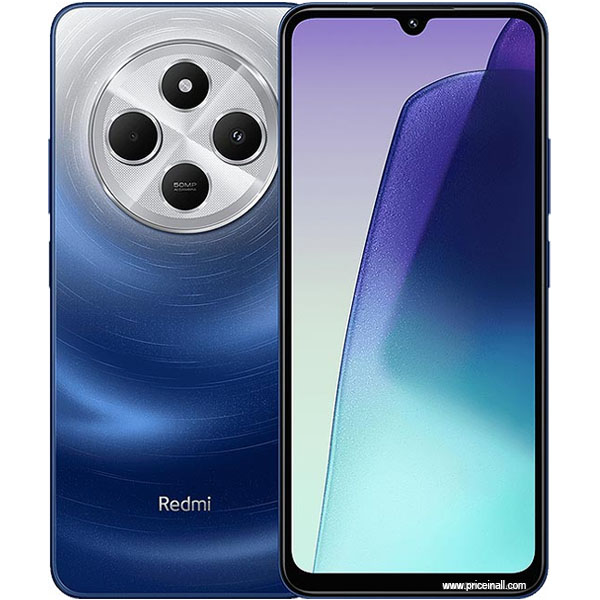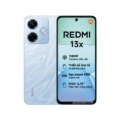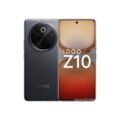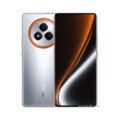- Latest Product
- Product
- Mobiles
- Xiaomi Redmi 14C
Xiaomi New Device
-->Xiaomi Redmi 14C Full Details
Basic info
| Brand | Xiaomi |
| Model | Redmi 14C |
| Category | Smartphone |
| Status | Released |
| Launch Announcement | August, 2024 |
| Launch Date | 2024, August 30 |
Network Connection
| Network Type | GSM / HSPA / LTE |
| 2G Network | |
| 3G Network | |
| 3G Bands | HSDPA 850 / 900 / 2100 |
| 4G Network | |
| 4G Bands | 1, 3, 5, 7, 8, 20, 28, 38, 40, 41 |
| 5G Network | |
| Speed | HSPA, LTE |
| GPRS GPRS (General Packet Radio Service) is a packet oriented mobile data service on the 2G and 3G cellular communication system's global system for mobile communications (GSM), Generally, GPRS is used for the purpose of wireless data transfer, such as sharing pictures and videos or browsing the Internet via a mobile phone connection. |
Body
| Dimensions | 171.9 x 77.8 x 8.2 mm |
| Weight | 204 / 207 / 211 g (7.20 oz) |
| SIM Card | Dual SIM (Nano-SIM, dual stand-by) |
| Colors | Midnight Black, Sage Green, Dreamy Purple, Starry Blue |
| Build | front Gorilla Glass, plastic frame, plastic back |
| Protection | Corning Gorilla Glass |
Display
| Display Type Display Technology => A number of display technologies and types used in mobile phones => TFT (Thin Film Transistor), IPS (In-Place Switching), OLED (Organic Light Emitting Diode), AMOLED (Active-Matrix Organic Light-Emitting Diode), Super AMOLED (an even advanced version of AMOLED), Resistive Touchscreen (Resistive touchscreens contain two layer of conductive material with a very small gap between them which acts as a resistance), Capacitive Touchsceen (Capacitive touchscreen technology consists of a layer of glass coated with a transparent conductor) | IPS LCD |
| Size | 6.88 inches |
| Ratio | (~84.0% screen-to-body ratio) |
| Resolution | 720 x 1640 pixels |
| Pixel Density Pixel Density (PPI) is refers to the concentration of pixels on a particular display, measured in pixels per inch (ppi). Pixel density is calculated by dividing the diagonal pixel resolution of a display by its diagonal size, higher pixel density better display quality. | 260 ppi |
| Multitouch | |
| Display Protection | Gorilla glass |
| Refresh Rate | 120Hz |
| Features | 450 nits (typ), 600 nits (HBM) |
Hardware
| CPU CPU (Central Processing Unit) mostly known as processors, CPU processes instructions in order to carry out certain functions that make your device operate properly. Processors are often described as the brain of computers, smartphones and tablets, Smartphones and tablets rely on processors to carry out their every task, Processors are an incredibly important factor in selecting any type of computing device, including your smartphone. | Octa-core |
| GPU GPU (Graphics Processing Unit) is a single-chip processor designed to rapidly manipulate and alter memory to accelerate the creation of images in a frame buffer intended for output to a display, This includes things such as lighting effects, object transformations, and 3D motion. | Mali-G52 MC2 |
| Chipset Chipset is a group of integrated circuits designed to perform one or a more dedicated functions, often with real time computing constraints, Popular smartphones are equipped with more advanced embedded chipsets that can do many different tasks depending on their programming. | Mediatek Helio G81 Ultra |
| RAM | 4/6/8GB |
| Internal Storage Internal Storage is a data storage space (flash memory) mostly used in smartphones, tablets and other electronic devices where operating system, apps, music, photos, videos, files and other user data Is stored. | 128 /256GB |
| Memory Slot | Yes, microSDXC (dedicated slot) |
| Version | 128GB 4GB RAM, 128GB 6GB RAM, 128GB 8GB RAM, 256GB 4GB RAM, 256GB 8GB RAM |
| Storage Type | eMMC 5.1 |
Software
| Operating System OS => Every computer system run on a base software called Operating System (OS). Operating System controls all basic operations of the computer (such as smartphone, PDAs, tablet computers and other handheld devices). The Operating System allows the user to install and run third party applications (apps), apps are used to add new functionality to the device. | Android |
| Version | 14 |
| User Interface UI or user interface of a device is the look and feel of the on-screen menu system. How it works, its color scheme, how it responds to button presses, all of these things are part of the user interface. | HyperOS |
Main Camera
| camera |
50 MP, f/1.8, 28mm PDAF(wide), 2 MP, f/2.4, (depth) 0.08 MP (auxiliary lens) |
| Features | LED flash, HDR |
| Video | 1080p/30fps |
Selfie Camera
| camera |
13 MP |
| Features | HDR |
| Video | 1080p/30fps |
Multimedia
| Loudspeaker | Yes |
| 3.5mm Jack |
Connectivity
| Wi-fi Wi-Fi is a popular wireless networking technology using radio waves to provide high-speed network connections that allows devices to communicate without cords or cables, Wi-Fi is increasingly becoming the preferred mode of internet connectivity all over the world. | Wi-Fi 802.11 a/b/g/n/ac, dual-band |
| Bluetooth Bluetooth is a wireless communications technology for exchanging data between mobile phones, headsets, computers and other network devices over short distances without wires, Bluetooth technology was primarily designed to support simple wireless networking of personal consumer devices. | 5.4, A2DP, LE |
| Wi-fi Hotspot | |
| FM Radio | |
| USB | USB Type-C 2.0, |
| OTG | |
| GPS | |
| NFC NFC (Near field communication) is a set of standards for smartphones and similar devices to establish peer-to-peer radio communications with each other by touching them together or bringing them into proximity, usually no more than a few inches. |
Security
| Fingerprint | Fingerprint (side-mounted) |
| Sensors Sensors are electronic components that detects and responds to some type of input from the physical environment. The specific input could be light, heat, motion, moisture, pressure and location, The output is generally a signal that is converted to use in computing systems, a location sensor, such as a GPS receiver is able to detect current location of your electronic device. |
accelerometer, compass Virtual proximity sensing |
Power
| Battery Type | Li-Po non-removable |
| Battery Capacity | 5160 mAh |
| Battery Charging | 18W wired, PD |
| Fast charging | |
| Wireless Charging |
Price
| United States Price in United States. price us |
4/128-120$ 6/128-125$ 8/256-130$ |














